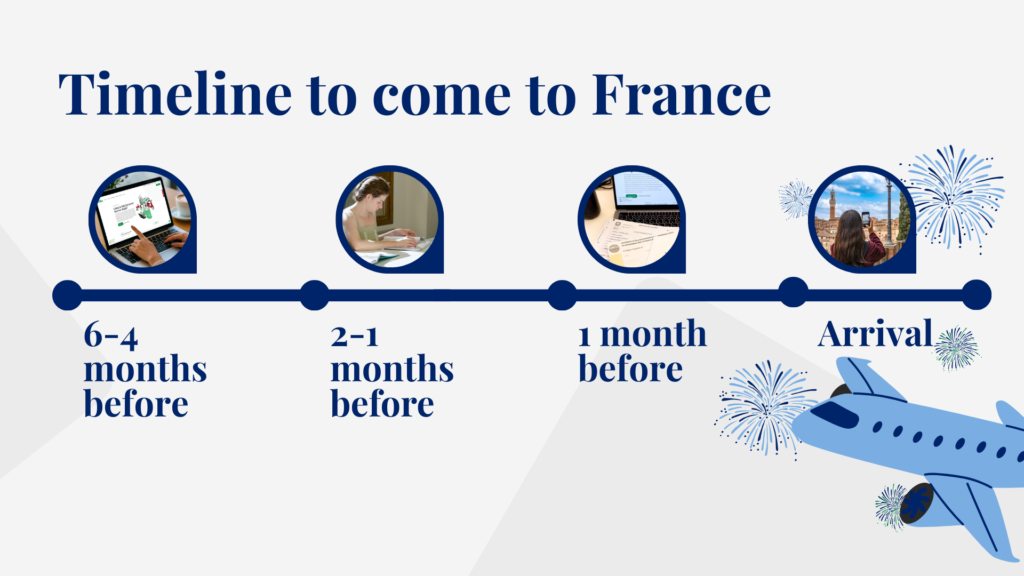The allure of France with its rich history, breathtaking landscapes, and the romance of its language draws countless international students every year. For those looking to immerse themselves in French culture while living and studying, the Working Holiday Visa (WHV) offers an incredible gateway. Here’s everything you need to know about applying for a working holiday visa for France, from its benefits to the application process.
What is a Working Holiday Visa?
A Working Holiday Visa for France allows young individuals from participating countries to live in France for up to one year, permitting them to work and travel. This visa is designed to promote cultural exchange and mutual understanding through a blend of work and leisure experiences.
Visa Length, Benefits, and Limits
The visa typically spans 12 months, offering a unique blend of travel and work opportunities. It allows holders to take up employment to fund their stay, making it an ideal choice for international students aiming to learn French in France. However, this visa doesn’t permit long-term employment with any single employer, emphasizing its purpose as a cultural exchange tool rather than a work program.
Countries Accepted
France has agreements with multiple countries allowing their citizens to apply for the WHV. Each agreement varies slightly, so it’s important to check the specific requirements for your country.
Here is a list of countries that have WHV agreements with France:
- Australia
- Argentina
- Brazil
- Canada
- Chile
- Colombia
- Ecuador
- South Korea
- Japan
- New Zealand
- Hong Kong
- Mexico
- Peru
- Russia
- Taiwan
- Uruguay
It’s important to note that the list of countries and the terms of each WHV agreement can change. Therefore, it is recommended to check the most current information with the French embassy or consulate in your country or visit the official French government immigration website for the latest updates on the WHV program and its eligibility requirements.
Eligibility Criteria
Applicants are required to be between 18 and 30 years of age at the time of application submission, meaning they must apply before the day they turn 31. This age requirement applies universally, except for individuals from Argentina, Australia, and Canada. For these countries, the age limit is extended to 35 years, allowing applicants to submit their requests up until the day before their 36th birthday.
How to apply for a Working Holiday Visa for France
- Prepare Your Documents: Gather all required documentation, including your passport, application form, photos, proof of financial means, health insurance, and a return ticket or funds for it.
- Submit Your Application: Depending on your country, applications may be submitted online or at your local French consulate.
- Attend an Interview: Some applicants may need to attend an interview at the consulate.
- Visa Issuance: If approved, you’ll receive your visa, which you must activate by entering France within a specified period.
Required Documents
Here’s a list of documents that are commonly required for a Working Holiday Visa for France:
- Passport: Valid for the duration of the stay, with at least two blank pages;
- Application Form: Completed and signed;
- Photographs: 2 recent passport-sized photos that meet the visa photo requirements;
- Insurance: Proof of a comprehensive travel insurance policy that covers medical expenses, hospitalization, and repatriation for the duration of the stay.
- Financial Means: Evidence of sufficient funds to support yourself at the beginning of your stay. This could be bank statements or a letter from a financial institution indicating your account balances.
- Return Ticket: Proof of a return ticket or sufficient funds to purchase one.
- Accommodation: Proof of accommodation or sufficient funds to secure housing.
- Cover Letter: A letter explaining the purpose of your stay, your plans in France, and why you are applying for the WHV.
The specific requirements and the application process can vary, so it’s always good to check the official website of the French embassy or consulate in your country or to contact them directly for the most accurate and up-to-date information.

Why You Should Use It
A Working Holiday Visa for France offers an unparalleled opportunity to explore French culture deeply. It’s a chance to enhance your French language skills in real-world settings, gain international work experience, and foster global connections that can enrich your personal and professional life. Whether wandering the cobblestone streets of Paris, tasting wines in Bordeaux, or skiing in the Alps, the WHV opens the door to adventures and learning experiences that go far beyond traditional tourism or study abroad programs.
Living in France under a Working Holiday Visa is more than a journey; it’s a transformative experience that melds work, study, and exploration into an unforgettable adventure. It’s an ideal path for international students who dream of learning French in France, offering a unique balance of freedom and immersion in a way that no other program can.
Go! Go! France can help you apply for a language school with a Working Holiday Visa. Contact us to get your life and study in France journey started.





